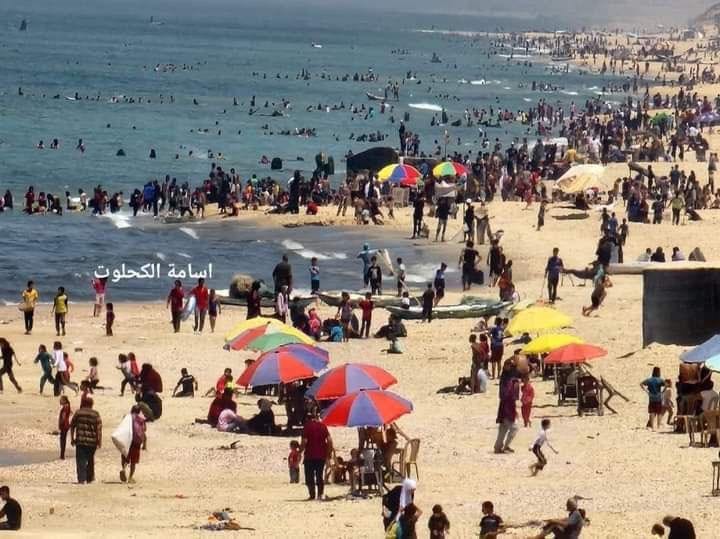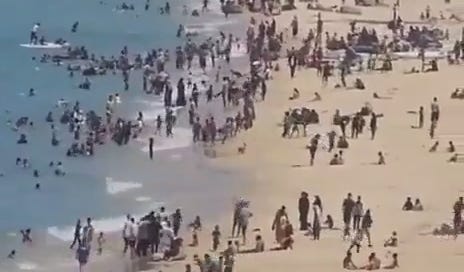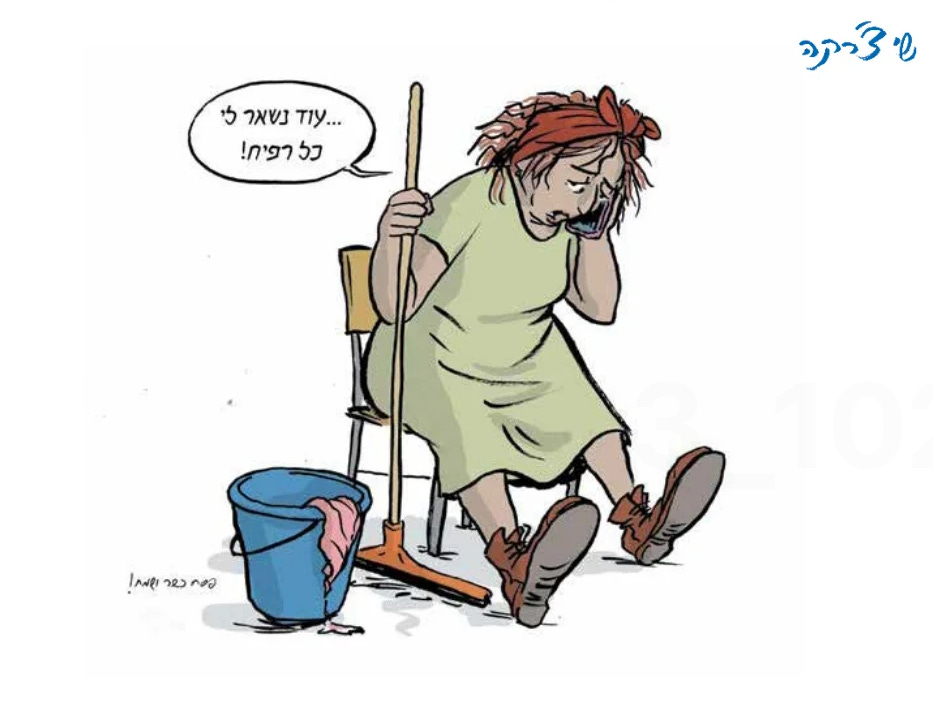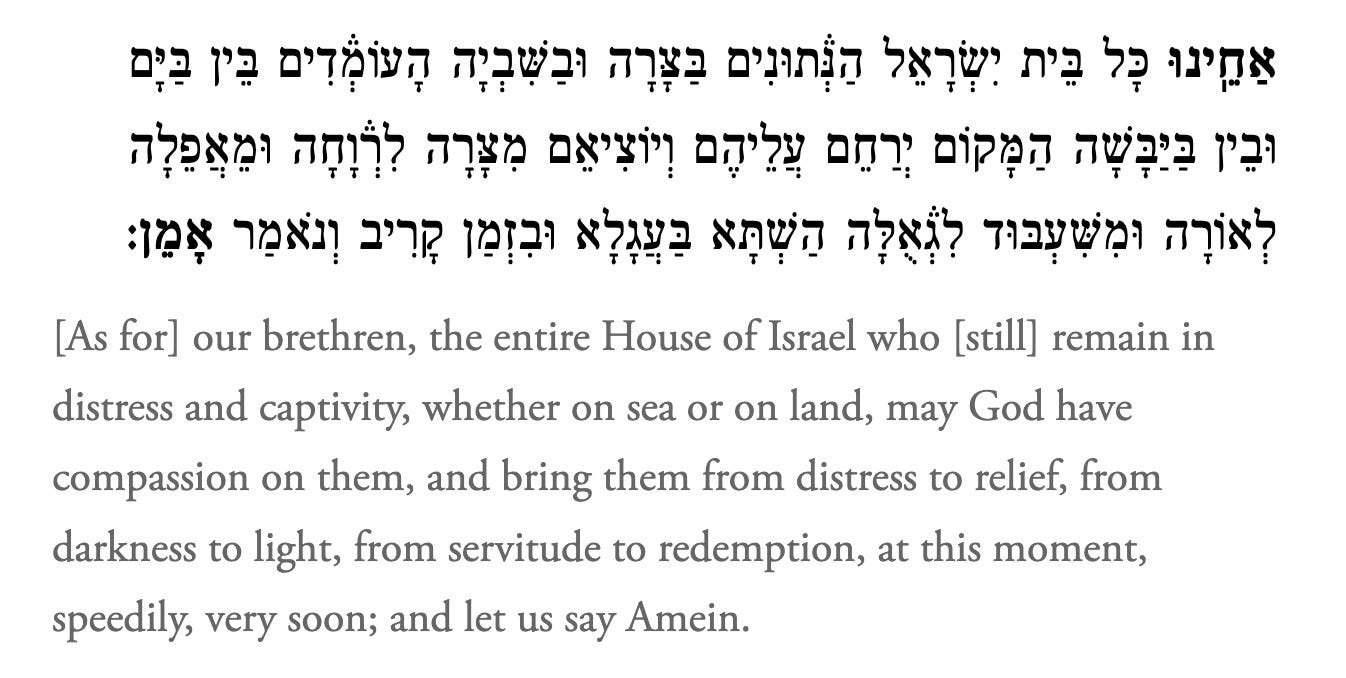On a week in which Israel was attacked by 300 missiles from Iran, it ironically seemed that the story that got most people talking was a series of images of Gazans having fun at the beach. (Iran also led to the hostages dropping off the agenda, to the horror of many of us.)
Of course, there was the to-be-expected snark response to the beach photos— “they don’t look like they’re starving.” But most people here understood that photos or videos of a few hundred people at the beach tell us nothing about the welfare of some 2,000,000 people. There are conflicting views here as to how serious the food shortage in Gaza really is—but photos and videos of the beach are not a data point, most Israelis understood.
Why, then, were the pictures so widely discussed? Because while the photos do not tell us much about Gazan hunger, they do suggest that the war in Gaza has quieted down, if not ended. And if that is the case, it has ended without Hamas being destroyed and without the hostages being returned.
In other words, if the war has ended, Israel did not achieve its goals. Period.
In some of the weekend papers, therefore, columnists (or in this case, the cartoonist for Makor Rishon) were adamant that the Rafah invasion simply has to happen. (People in the know have told me that it’s likely to happen right after Passover, but I don’t know if that’s true.)
This is the cartoon. It’s a picture of a woman exhausted from cleaning (not very PC by non-Israeli standards)—an obvious reference to preparation for Passover. But the words in the bubble say:
“I still have to clean out all of Rafah.”
[The small words to the left of the bucket say “A kosher and joyous Passover”—the traditional greeting.]
Many Israelis still believe that unless the IDF enters Rafah and destroys the four Hamas battalions believed to be there, too much of Hamas will remain intact for Israel to eke out anything resembling a victory.
But other Israeli voices are saying something very different. Daphna Liel, a widely-read, well-regarded centrist journalist and columnist, ended a recent column on Mako (Channel 12’s website) arguing that if the war has ended, Israel could officially end it and get something in exchange, or just let it slowly die down—and thus get nothing:
Israel has already agreed to the end of the war in Gaza, but received nothing in return. The only existing deal is to officially end the war in exchange for the return of the abductees. If we don't want the fighting to stop soon under international pressure for nothing, we should draw the conclusions as soon as possible.
Who is Daphna Liel? She’s a columnist for Channel 12, not easily fit into a box. As she noted in a much-read interview a while back, “the Left says I’m a Bibi-ist, while the Right screams that I’m a mouthpiece for the New Israel Fund.”
In short, she thinks. So she’s hard to predict. But she’s a presence on the Israeli journalistic scene—so much so that her persona has been included in skits on Eretz Nehederet (Israel’s “Saturday Night Live,” sort of).
Her recent column ran under the headline:
The Moment of Truth in this War: It’s Time to Tell the Public the Truth.
Part of her column was about the recent positions of Shas’ Aryeh Deri and normalization with Saudi Arabia, neither of which we will include here. But here are other portions of her column, Google-generated translation, with only major Google’s most egregious mistakes corrected.
…
The operation in Gaza had two goals - to defeat Hamas and return the kidnapped. But above all this hovered a strategic goal - to show the Middle East what happens to those who dare to attack Israel. The destruction of Hamas has one primary purpose: to make sure that October 7th will never happen again, and that anyone who thinks of violating Israel's sovereignty will see the results of the campaign in Gaza.
In this sense, the Iranian attack does not bode well: it shows that Israel's enemies have not internalized the message. On April 14, Israel's sovereignty was violated in an unprecedented way. And still those around the prime minister see this event as an opportunity - political as well as political.
How is it possible that a national humiliation like an Iranian attack is seen by Netanyahu as an opportunity? First, in politics what is important is the issue and not always the content. The Iranian issue is almost synonymous with Benjamin Netanyahu, who has become one of the people identified with the issue. It doesn't matter that Netanyahu's policy has led to the opposite results - Iran is racing towards nuclear power, Israel is surrounded by a stranglehold of Iranian proxy forces, and now Iran also dares to attack Israel directly. When it comes to Iran, Netanyahu is seen as the first to have recognized the issue.
The amazing achievement of the Israeli defense systems allowed some air into our lungs, but was of little comfort to the citizens who were abandoned to their fate on October 7. Netanyahu hopes that the army's failures on the day of the massacre will fall on the army's shoulders, but that the successes of April 14 will be attributed to him. Sound impossible? When it comes to a public relations genius like Netanyahu, and an audience that is looking for reasons to return home anyway - anything is possible.
…

….
And finally - it seems to me that this week there were two turning points regarding Gaza, which oblige us to recalculate our course. The first occurred when Hamas gave its answer to the mediators - 20 hostages in exchange for 42 days of respite and setting the guarantees for the next and final stage of the deal. The subtext is important - Israel will only get to see hostages at home when it is ready to end the war. The second turning point was the photos from the beach in Gaza, which show that in practice the war is over: this does not mean that heroic soldiers are not risking their lives and doing important military operations there, but this is not a war. It might be fighting or intense fighting. Even an operation in Rafah will not change that.
In other words: Israel has already agreed to the end of the war in Gaza, but received nothing in return. The only existing deal is to officially end the war in exchange for the return of the abductees. If we don't want the fighting to stop soon under international pressure for nothing, we should draw the conclusions as soon as possible.
What the Makor Rishon cartoon and Daphna Liel have in common is their sense that the present situation is not tolerable. Either, as the cartoon suggests, it’s time to prosecute the war again (though how that gets hostages released is hard to see), or, as Liel says, admit that the war is over and try to barter that fact for the hostages.
Netanyahu may believe that the rather tepid response to Iran’s provocation can be traded for American permission to enter Rafah. Whether he’s right is not yet clear.
What will Israel do? Probably nothing until after Passover is the widely-held assumption (which could also be a bluff).
In the meantime, tomorrow night, Israelis will sit down at their Seder tables knowing that this year, we will be both recalling Jewish history and watching it unfold at the very same time. The pain in the air here is palpable … in all the newspapers, all the synagogues, all over the radio—there are discussions of this question:
“In every generation they rise up against us to destroy us, but the Holy One Blessed be He saves us,” says that Haggadah.
“Really? God saves us? Who could possibly say that this year?”
Different people are doing different things at their Seder table, but there’s hardly anyone who takes Passover seriously who isn’t talking about it.
We have to engage in a ritual that incorporates this crisis, without knowing how generations to come will ultimately see it, without being entirely certain what the crisis actually is.
What we do know, though, is that it is likely very far from over.























